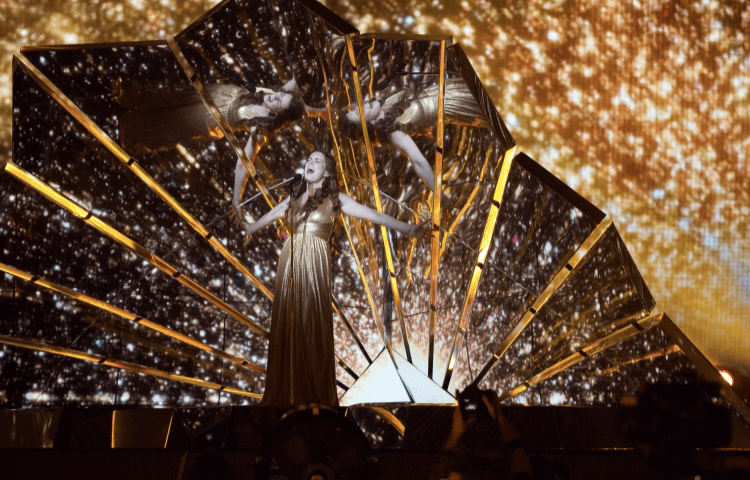‘Eurovision: Come Together’ will celebrate our best qualities: creativity and community
The cancellation of the Eurovision Song Contest last month was one of the sadder, albeit less serious, parts of the coronavirus pandemic. Though people are suffering far worse circumstances, the Eurovision grand finale – this year set in Rotterdam – has been one of my favourite evenings in recent years. I was especially looking forward to celebrating on the Warwick piazza for the first time, with a huge screen and shared student community united by an exciting evening ahead.
However, not all is lost. The BBC has announced an alternative Eurovision to replace what would have been this year’s final. In place of the live show, ‘Eurovision: Come Together’ will interview current contestants – like the UK’s James Newman – and air classic performances from decades gone by, allowing audiences to celebrate the show’s past achievements and memorable occasions from their childhoods. As someone who only started watching Eurovision in 2017, this is a great way to gain some cultural knowledge of what has now become an iconic annual spectacle.
It’s understandable why the event has been cancelled: Eurovision is never something that could be done half-heartedly
But the evening won’t be the same. However much I look forward to the appalling costumes, watching the best and worst acts with equal interest and embracing the European (and Australian) wackiness, it won’t make up for the excitement of a live evening of drama where anything can happen. It’s understandable why the event has been cancelled: Eurovision is never something that could be done half-heartedly or without a live audience. However, its absence will feel extremely present.
The live aspect of Eurovision is partly why I love it so much. For one night a year, nations come together to celebrate their bizarreness. Eurovision goes far beyond ‘normal’ showbusiness: screening the strangest of performances, extravagant styles and questionable pop stars, it allows for a mesmerising evening of entertainment. Even if I’ve forgotten most of the acts by the following week, there will always be performances that stick in my mind, often not the winners.
From Graham Norton’s pithy commentary on each contestant to the awkward wifi connections, these are eccentrics that only Eurovision can live up to
Eurovision is truly global. With an estimated 150 million individuals enjoying the live final, it is something that transcends division and brings trans-national communities together. And with the Brits hosting, it’s bound to be a night you won’t forget. From Graham Norton’s pithy commentary on each contestant to the awkward wifi connections, these are eccentrics that only Eurovision can live up to. It’s a real shame that we won’t be able to enjoy a renewed version of this in 2020 – at least not in the traditional way.
Everyone who watches the occasion will no doubt do so in a different location and context. Whether it’s as an individual or in a large group, there is a sense of community and celebration – my family usually try to provide some European food to properly enter the spirit of the evening. The greatest part of the night is the scoring sheets, where the running order for each performance is announced. This convention, as well as the flag bearing, the postcard, the fear of ‘null’ points and strange scenes in the green room will continue, despite the change in broadcast.
While this upcoming will be one of sadness for Eurovision’s cancellation, there is always next year to look forward to. And besides, there is plenty of archive footage – good, bad and ugly – to enjoy in the meantime
I always remember the winning acts from the three occasions I’ve watched Eurovision. Though they haven’t necessarily been my preferred winners, the encore songs and joy of celebration usually means they stick with me. Often, the Eurovision performances will have been heavily promoted before the final: but for me, like the best films, I enjoy those I know the least about before-hand. I actively celebrate my ignorance before the occasion starts. Yet from Duncan Laurence’s ‘Arcade’ last year to Salvador Sobral’s ‘Amar Pelos Dois’ in 2017, the tunes that ultimately triumph are still memorable and worthy winners.
That is not to say I don’t have my favourite performances. These may change following the BBC’s throwback special but I doubt it. Moldova’s 2018 entry of ‘My Lucky Day’ by DoReDos will forever be the greatest Eurovision entry of all time. I also won’t forget Kate Miller-Heidke, Australia’s 2019 entry, performing ‘Zero Gravity’, primarily for its true bizarreness and utter freedom. It encompasses everything Eurovision is supposed to be: uniting in celebration of what human creativity can achieve.
Though no replacement could ever match the live final, both the BBC and the Eurovision teams have done their very best, given the situation, to ensure all fans get their annual dose of the truly unique evening. While this upcoming show will be one of sadness, there is always next year to look forward to. And besides, there is plenty of archive footage – good, bad and ugly – to enjoy in the meantime.

Comments